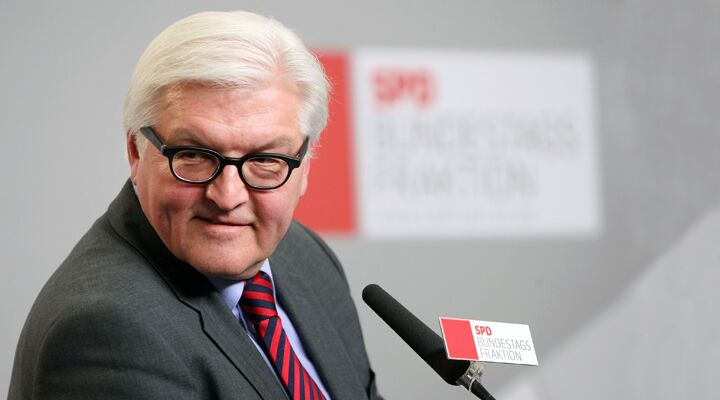
Germans Demand Radical Change in the EU
The European Commission should expand its powers to become a full-fledged European government says Germany’s Social Democratic Party (spd) in a draft of its manifesto.
The EU proposal reportedly described looks a lot like a federal superstate. As German news media reported on March 9, the European Commission would become a cabinet of ministers, with real powers, elected by the European Parliament. A second chamber would be added to the parliament, where national governments would be represented.
German Chancellor Angela Merkel has outlined similar ideas. If the spd is putting this in its manifesto, it shows that Germany’s two biggest parties are serious about Europe becoming a superstate.
The spd also called for the creation of a common European debt fund—which would mean giving up more sovereignty to the EU.
The spd could do well in the upcoming elections. Current polls show current Chancellor Angela Merkel and her allies receiving 45 percent of the vote, and the spd and its ally receiving 43 percent—so it is too close to call. To make matters more unpredictable, Angela Merkel’s traditional coalition partner, the Free Democrats (fdp) are polling at around 5 percent. To be represented in Germany’s parliament, a party must receive a minimum of 5 percent of the vote. Less than this, and they receive no seats. The fdp’s popularity just needs to sink by a fraction of a percent, and Merkel would be completely deprived of a key ally.
To complicate matters further, there is a new party on the scene. Called “Alternative für Deutschland” (afd), it seeks the opposite: It wants Germany out of the euro.
“The introduction of the euro has proved to be a fatal mistake, that threatens the welfare of us all,” states the afd website. “The old parties are used up. They stubbornly refuse to admit their mistakes.” The afd wants Germany return to the Deutschmark, or to form a new currency with the northern countries—Austria, the Netherlands, Finland and perhaps some others.
Germany has been bailing out Europe and in return Berlin has been gaining more influence over Europe. This is great, if you’re a leader in Germany or a strategic planner. But the average German voter doesn’t see the benefit. The vast majority are opposed to bailing out Cyprus. If a Euroskeptic party becomes a growing concern in Germany, then eurozone nations will have to give up even more to persuade Germany to bail them out.
How will the new afd party impact Europe’s politics? Open Europe, a reliable think tank, is convinced that there is no way it will come close to receiving the 5 percent of the vote necessary to enter Germany’s parliament. This analysis is hard to dismiss. But in a year when Beppe Grillo’s Five Star Movement came from nowhere to become Italy’s most popular political party, anything seems possible. The new party will certainly apply pressure on Angela Merkel as she struggles to deal with unpopular bailouts.
One thing is clear though: Germans aren’t happy with Europe the way it is now. The big parties want to change it into a superstate. The upstarts want to overthrow it entirely. Either way, Germans want to radically change Europe.
